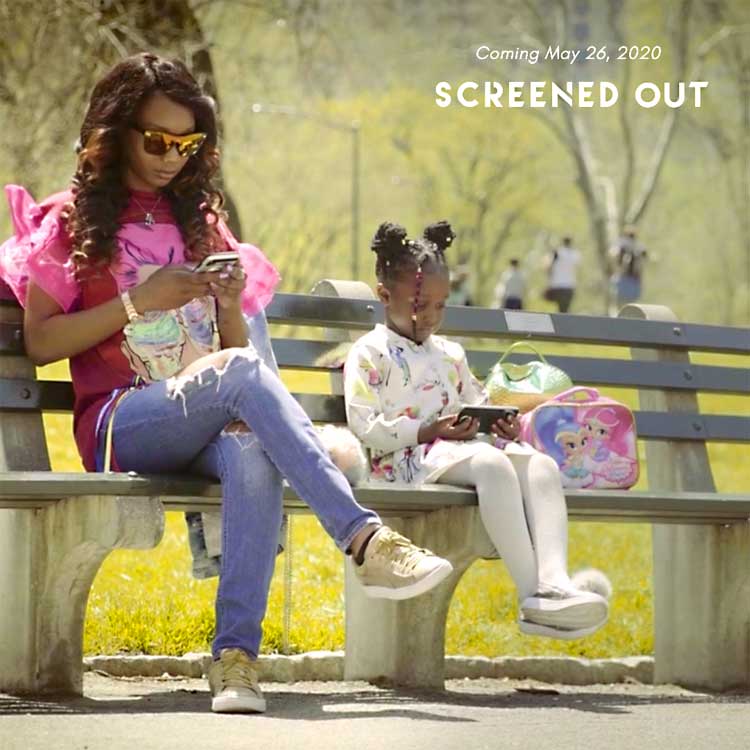
While out walking the dog this morning, I witnessed a near-tragic accident as a biker and a truck almost collided.
The truck was, of course, driving too fast and barreling down my street. The biker, a young girl around 13, was merging into the street, also cruising down the road, eager to reach her destination. It was one of those moments where, for some reason, you happen to look up seconds before something bad happens to witness something horrible. I looked up and saw this girl, riding one handed and glancing down at her other hand. In that other hand was her phone.
The driver of the truck saw her, swerved out of the way and slowed. The girl looked up, slightly aware of what could have just happened, then quickly put the phone in her fanny pack and pedaled past me and the pup. I locked eyes with the truck driver and together we both shook our heads in disbelief.
In the new documentary about screen time, aptly titled Screened Out, Dark Star Pictures, a company whose mission is to create thought-provoking cinema, has done a great job. The film has, to me, proven to be riveting, but has forced me into self introspection, looking at my own screen habits and how they have come to be.
In a shockingly short amount of time, technology has changed by leaps and bounds. Perhaps in 15 years we will see another massive shift in how we communicate, interact and work. It could all change, but one thing that is for sure, this new wave of screens and smart phones has drastically changed our lives. Screened Out talks about how we have a whole new generation, mostly our children, for whom always having a screen in hand or nearby is not a change in their lives. This is their lives. They are not able to understand life without being connected, and we need to help them set healthy boundaries of knowing when to “unplug.”
One of my favorite subjects to bore my kids with is rambling on about what technology was like back when I was a kid. They moan and groan, hoping I will change the subject to something less “fascinating” as they say with sarcasm. Eventually I am met with looks of confusion as they try to grasp the concept of one phone, connected to a wall, for all the family to use. I remember visiting my grandparents in rural Michigan when they had a party line. For you young readers out there, that is a shared line that several families on the road use, so if you picked up the receiver and heard your neighbor speaking, you have would hang up and hope that in awhile the line would open up.
Screened Out shows its audience extreme cases of screen-time abuse. It is these stories that expose our own overuse and just how detrimental it is, not only to ourselves, but to our children who look to us for guidance and leadership. Fully developed brains have to model the right behavior for our children who really need to unplug to have better mental and physical health. I myself experience frustration when I realize that I’ve subconsciously picked up my phone to click on the various social media apps that call my name. What am I doing scrolling through Facebook again? What level of addiction do I have with my phone? How difficult will it be to untether myself from this device?
Screened Out is important for all parents to watch as it helps us to understand just how much damage is being done to our toddlers, our school-aged children, our teenagers and even ourselves by staring for hours at our phones. This is nothing new — we already know about the screen problems. The question is: Do we want to know this? Or is it easier to just ignore how bad it is because it feels so good?
Screened Out will be released digitally on May 26, 2020.
